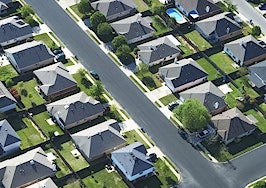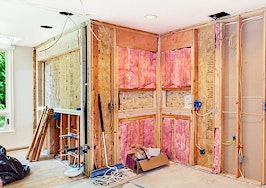From North Carolina in the aftermath of Hurricane Florence to parts of California ravaged by wildfires and Hawaii following the Kilauea volcano eruption, home delinquency rates rose sharply in September even as foreclosures hit a 12-year low nationally, according to a new CoreLogic report.
In the face of historically low foreclosure rates — 0.5 percent in September, down 0.1 percent year-over-year — the effects of climate change on homeownership has begun to take shape in cities now recovering from natural disasters, including in Hawaii, where delinquency rates soared 10 percent between June and September in areas of the Big Island hit hardest by lava flow, which reportedly destroyed nearly a thousand residential properties following the Kilauea eruption.
“The effects of 2018’s natural disasters have begun to show clearly in our delinquency data,” said Dr. Frank Nothaft, chief economist for CoreLogic, in a prepared statement. “This was the largest monthly spike up in this delinquency metric since July 2006 when the foreclosure crisis was beginning.”
In the part of California where Carr wildfires scorched nearly 230,000 acres of land and destroyed more than 1,000 residential properties, the 30- to 60-day delinquency rate jumped 19 percent from August to September. And in North Carolina, where Hurricane Florence flooded more than 11,o00 homes in September, the 30-day delinquency rate in major cities doubled in the first month after the storm.

Courtesy of CoreLogic
Elsewhere, however, serious home delinquencies and foreclosures hit a 12-year low, with the number of homeowners who were late on their mortgage payments by more than 30 days dropping to 4.4 percent, down from 5 percent in 2017, according to the latest CoreLogic Loan Performance Insight report, released Tuesday. Even in Hawaii, where much of the state was untarnished by lava flow, the delinquency rate fell by 4 percent in areas not impacted by volcanic eruption.
Meanwhile, foreclosure rates, or having one’s house seized by the government due to failure to make mortgage payments, fell to 0.5 percent, compared to 0.6 percent in September 2017, according to the CoreLogic analysis.
“Outside of areas affected by natural disasters, serious delinquency and foreclosure rates have declined steadily across the nation as the labor market has improved and home prices have risen,” said Frank Martell, president and CEO of CoreLogic. “However, we have also seen a rise in high loan-to-value and high debt-to-income lending in our CoreLogic TrueStandings data, heightening the risk of a significant upturn in loan default if the economy slips into recession or home prices decline.”

Courtesy of CoreLogic
In November, a report by 13 federal government agencies concludes that as many as 49.9 million homes along United States shorelines could be threatened by rising sea levels caused by global warming, indicating that foreclosures will continue to soar as climate change occurs.
Mandated by Congress and released publicly by the Trump administration, the second volume of the fourth National Climate Assessment estimates that homes and businesses valued at approximately $1.4 trillion sit within ⅛ of a mile from a U.S. coast. With 66-percent probability, the 1,656-page report projected that between $66 billion and $106 billion in real estate could sink below sea level by 2050, and between $238 billion and $507 billion by 2100.
“Flooding from rising sea levels and storms is likely to destroy, or make unsuitable for use, billions of dollars of property by the middle of this century, with the Atlantic and Gulf coasts facing greater-than-average risk compared to other regions of the country,” according to authors of the report, which includes scientists from the U.S. Global Change Research Program and the National Oceanic and Atmospheric Administration.








